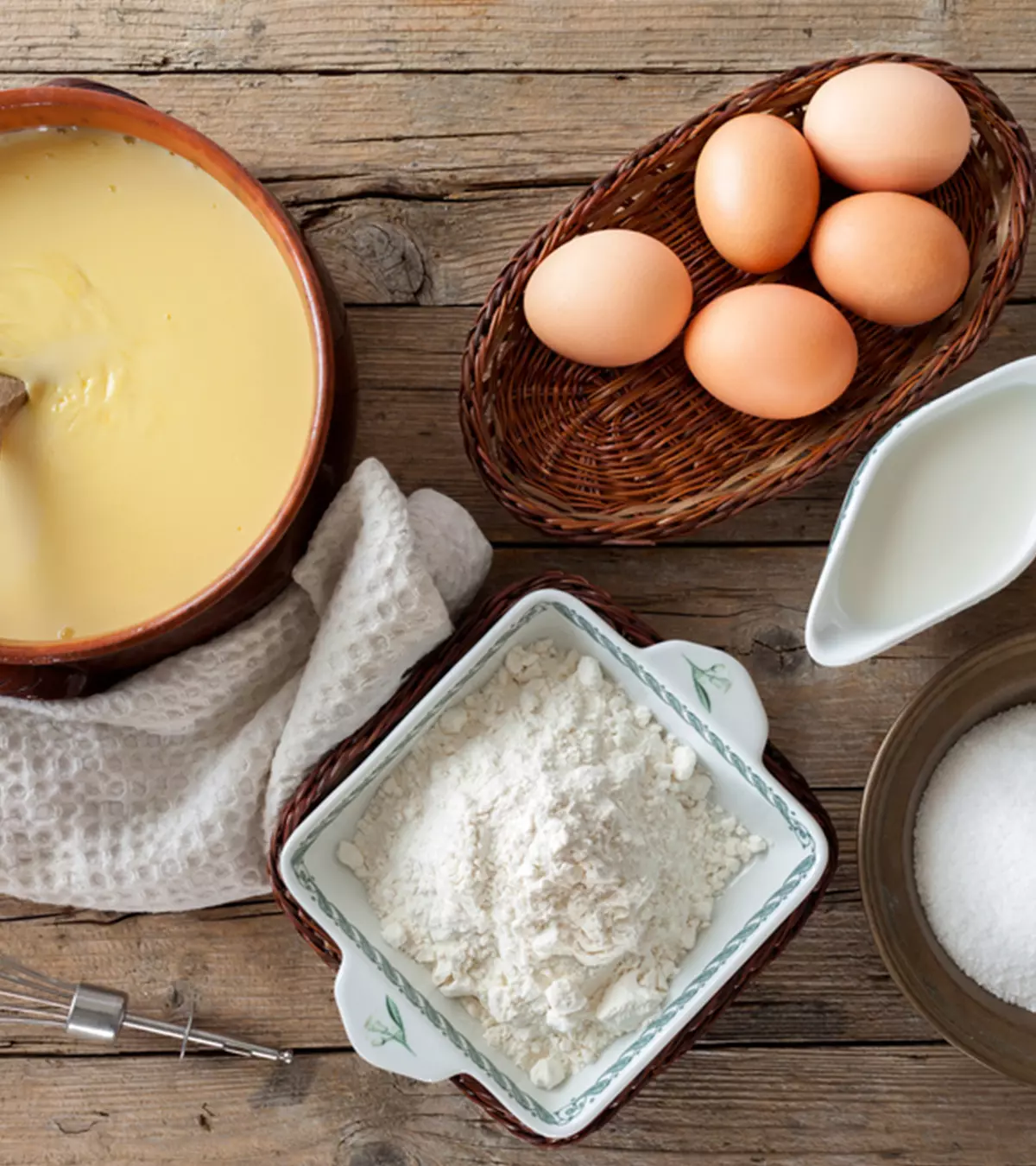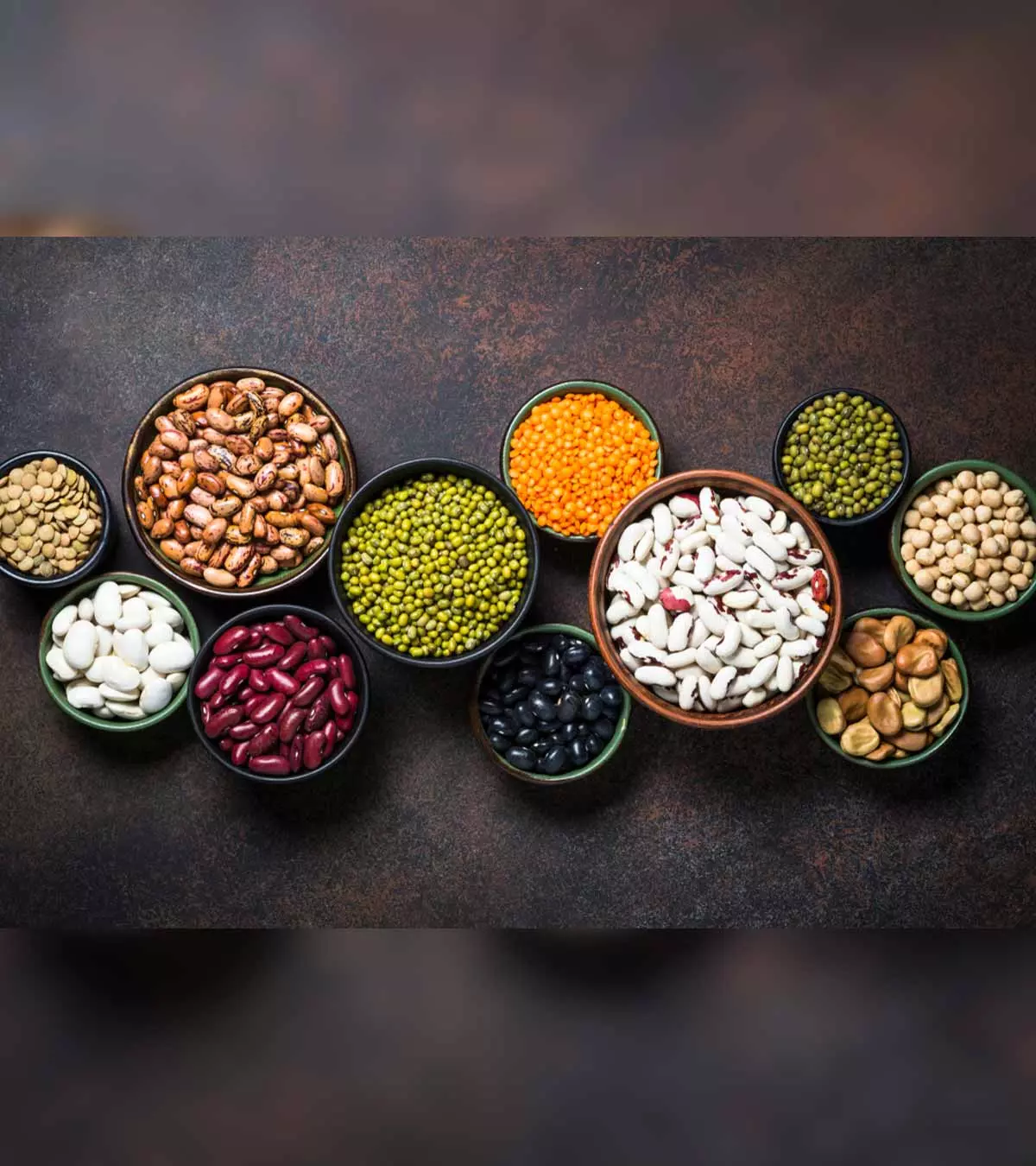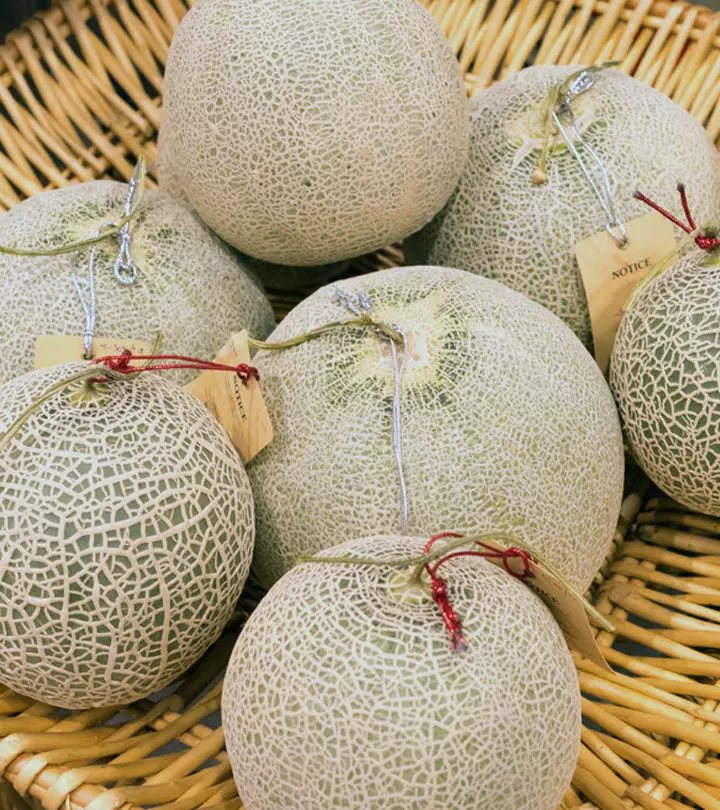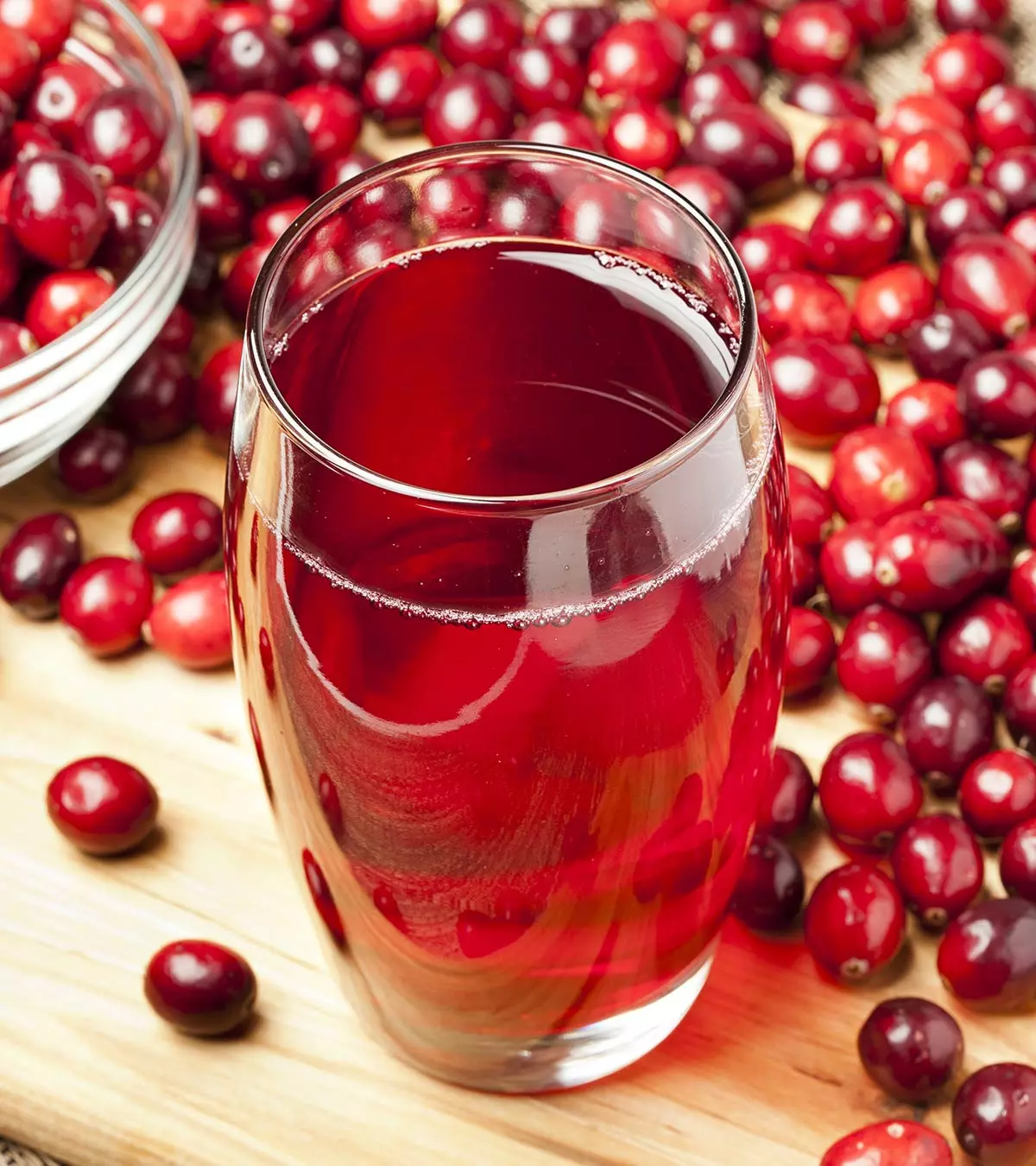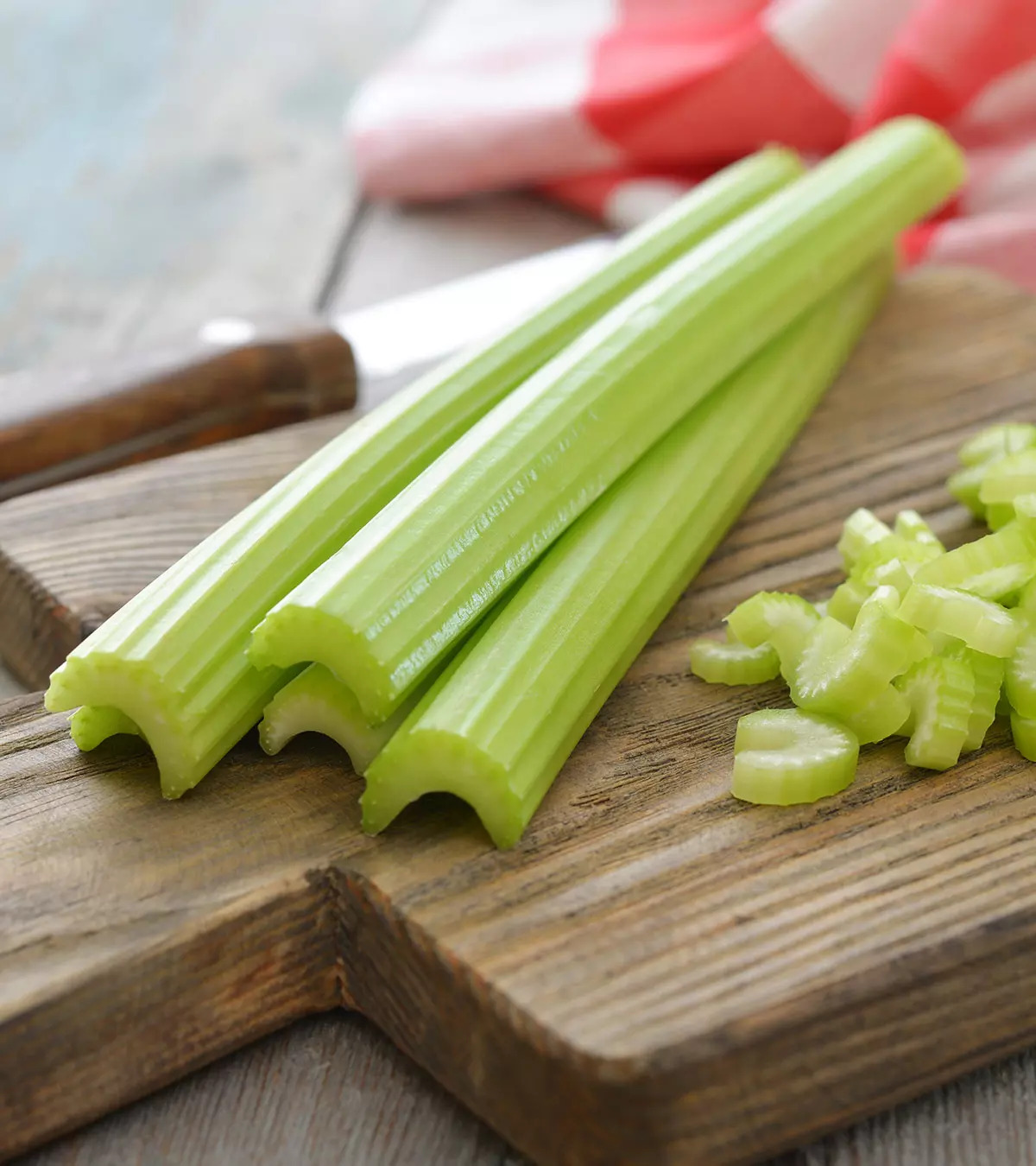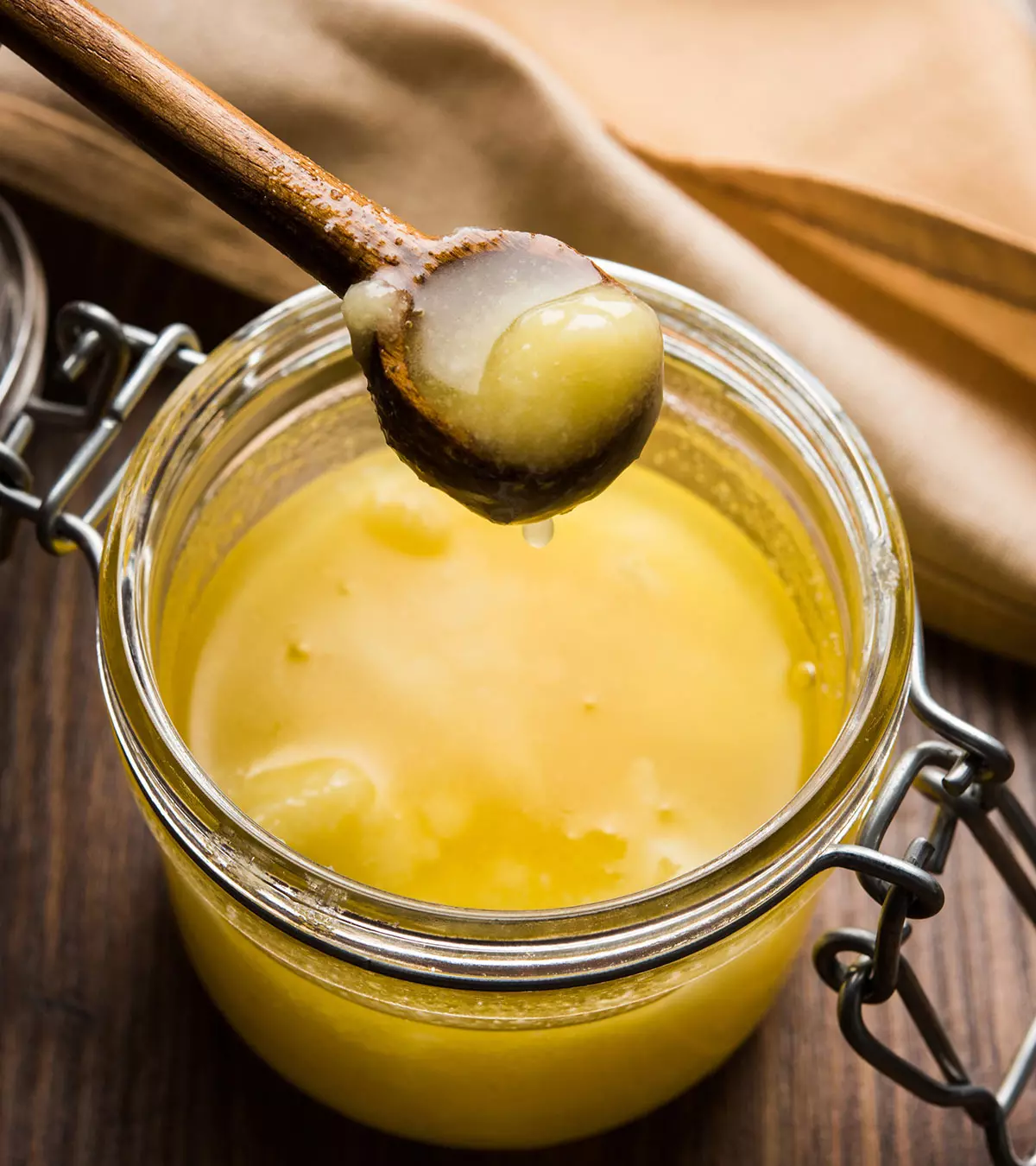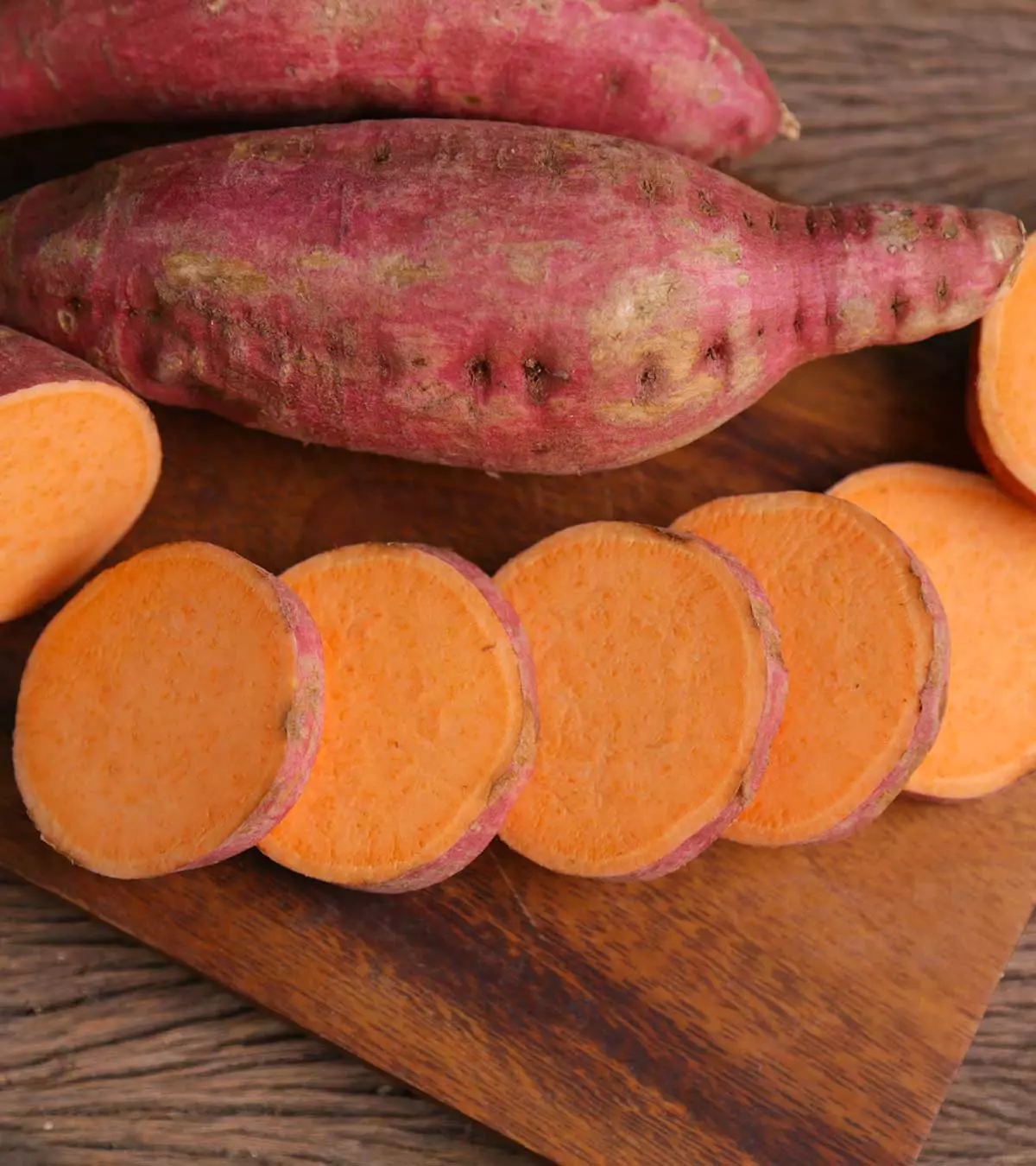
Image: ShutterStock
Having sweet potatoes during pregnancy is considered to be a healthy choice. Unlike potatoes, sweet potatoes are comparatively rich in carbohydrate content and are also a nutrient-rich food option for pregnant women. You can either boil it, stir fry it or bake it; it is delicious anyway. The sweet notes of this vegetable also allow it to be used for a wide range of desserts. Read on to know more about the benefits of sweet potato for pregnant women and also a few ways you can include it in your daily diet.
Key Pointers
- Sweet potatoes contain beta-carotene that increases progesterone levels, aiding uterine growth and preventing premature contractions.
- Women with kidney stone history should avoid sweet potatoes due to high oxalate levels.
- Sweet potatoes are a low glycemic index option for women with diabetes.
- Excessive sweet potato consumption during pregnancy increases the risk of congenital abnormalities and miscarriage.
Is It Safe To Eat Sweet Potatoes In Pregnancy?
Eva De Angelis, a dietitian nutritionist from Argentina, says, “Aside from folic acid, sweet potatoes are high in beta-carotene, a vitamin A precursor that increases progesterone levels. This hormone is crucial for uterine growth during pregnancy and preventing premature contractions. However, as with any food, eating too many sweet potatoes can harm your health, especially if you have kidney stones due to their high oxalate content.”
Yes, sweet potatoes are considered safe for consumption during pregnancy (1) (2). are full of nutrition and are rich in vitamins A and C, and fiber. But women with or a history of chronic kidney diseases should avoid eating sweet potato as it contains high amounts of oxalate that could increase the risk of kidney stones (3).
While it is good to consume this root for the nutrients it supplies, eating it in excess is not a good idea, especially in pregnancy.
Nutritional Profile Of Sweet Potato
Sweet potatoes are a good source of vitamins, minerals, and antioxidants (4). According to the United States Department of Agriculture (USDA), 100 grams of sweet potato provides 76kcal of energy, 17.7g carbohydrate, 27mg calcium, 18mg magnesium, 230mg potassium, 27mg sodium, and 6µg folate. It also contains 787µg of vitamin A (RAE) and 12.8mg of vitamin C (5). Although minerals like calcium, magnesium, zinc, sodium, phosphorus, and potassium are reported to have been present in low to moderate quantities in sweet potatoes, it is reported that iron is present in good concentrations of 10 mg (4).
All these nutrients are essential for a healthy pregnancy. In the next section, we see how they benefit soon-to-be mothers.
 Quick fact
Quick factHealth Benefits Of Sweet Potato During Pregnancy
Regular consumption of sweet potatoes during pregnancy can provide the below nutrients to the body.
- Vitamin A: Consuming foods such as sweet potatoes that are rich in vitamin A (β-carotene) can help in tissue maintenance, fetal growth, and also supports metabolism (7). It can also support the visual development of the fetus and help reduce the risk of eye-related problems in newborns (17).

- Potassium: The need for potassium during pregnancy is higher than that it other women of the same age. Sweet potato contains potassium, which helps to maintain fluid balance and normalize blood pressure (8).
- Folic acid: Pregnant women require 400mcg folic acid a day to prevent the risk of spinal cord defects. And half a cup of sweet potatoes contains 40 to 90mcg of folic acid (9).
- Low GI: If you have gestational diabetes, including low-GI foods such as sweet potatoes in your pregnancy diet can be helpful (10). Due to its low GI, white sweet potatoes are considered meal replacement and are convenient for weight management (11).
It is also said that the consumption of purple sweet potato leaves boosts your immune system by modulating several immune functions like secretion of cytokines that help in the body’s immunity and inflammation responses (12).
De Angelis adds, “Boiled sweet potatoes are excellent during pregnancy. Despite having a high-carbohydrate content, they have a low-glycemic index, which means that carbohydrates are absorbed slowly, preventing blood sugar spikes.”
 Did you know?
Did you know?All foods, including foods to eat during pregnancy, should be consumed in moderation, as overdose or deficiency of nutrients in the body could cause certain side effects.
Possible Side Effects Of Eating Sweet Potatoes In Pregnancy

Excess of any nutrient could be harmful in pregnancy. As mentioned before, women with or a history of kidney problems should limit the intake of sweet potatoes, as they have high levels of oxalate (3).
Also, check with your doctor if you can consume sweet potatoes when you are on any medication. The root vegetable can interfere with some drugs and have adverse effects on your health.
Can Sweet Potato Cause Miscarriage?
More than 15,000 IU of vitamin A in daily diet could increase the chances of abnormalities. As sweet potatoes are high in vitamin A, you should not have more than what is recommended during pregnancy (14). An increased amount of vitamin A during the first stage of pregnancy could be associated with congenital malformations and miscarriage.
So, no matter how much you crave sweet potatoes, keep a tab on their consumption to avoid excess intake.
Can Pregnant Women With Diabetes Eat Sweet Potatoes?
While more extensive research is needed, incorporating sweet potatoes into the diet may support healthy blood sugar regulation in individuals, including pregnant women (15).
The benefits of sweet potatoes for those with diabetes could be attributed to their medium glycemic index and rich dietary fiber content. This fiber promotes stable digestion and prevents sudden spikes in blood sugar. Studies suggest that sweet potato extracts can increase adiponectin levels in individuals with type 2 diabetes. Adiponectin is a hormone that plays a role in insulin metabolism, and higher levels of adiponectin are typically associated with better insulin metabolism.
Sweet Potato Cravings During Pregnancy
Some theories say that sweet potato cravings during pregnancy could be because you crave something sugary or starchy. It could also mean that your body needs carbohydrates and craves foods that are rich in it. However, there is no scientific evidence to prove these theories about sweet potato cravings in pregnancy.
Regardless of the reasons for your craving, you can enjoy this root vegetable in several ways.
Ways To Include Sweet Potatoes In Your Pregnancy Diet
Sweet potato can be relished in many ways. Here are a few.
- Thinly slice the sweet potatoes and toss them in salt and pepper. Then bake them to make crispy and healthy chips.

- Boil chunks of sweet potatoes, add some herbs and olive oil and grill them.
- Add chunks of half-boiled sweet potatoes in a green salad to make a quick snack.
- Peel sweet potatoes, cook them and add a few drops of maple syrup to make a sweet dish.

Frequently Asked Questions
1. Is sweet potato with skin good for pregnancy?
Sweet potato skin is nutritious, and cooking with the skin reduces the loss of nutrients, including vitamin C and beta carotene, while cooking (6). The skin is also rich in fiber, containing half of the fiber found in the vegetable (16). Hence, consuming sweet potato with its skin is recommended as long as it is thoroughly washed.
2. Can a pregnant woman eat fried sweet potatoes?
While pregnant women can consume fried sweet potato in moderation, they should consider opting for healthier cooking alternatives. Baking, grilling, or boiling sweet potatoes can reduce the loss of nutrients while cooking and the consumption of unnecessary fats.
3. How much sweet potato should I eat during pregnancy?
“One large cooked sweet potato, or one cup, is a great addition to the diet. Sweet potatoes are high in fiber and can aid in the prevention of constipation in pregnant women. One cup of cooked sweet potatoes contains nearly one-third of the recommended fiber for pregnant women. I usually advise my pregnant patients to eat a medium/large sweet potato daily or at least a few times per week,” opines De Angelis.
4. Can sweet potatoes help with morning sickness?
Yes, the starchy carbohydrate content in sweet potatoes can help alleviate nausea and vomiting during pregnancy (18).
Sweet potatoes during pregnancy are considered safe if consumed in moderation. They have a low glycemic index (good for diabetes) and contain useful nutrients, such as potassium and folic acid. You may add it to your pregnancy diet in baked, boiled, or grilled forms. However, over-consumption should be avoided as it may increase oxalate levels, which may cause kidney problems and vitamin A, leading to congenital malformations. Also, check with your doctor to know how much of this root vegetable is suitable for you to consume.
Infographic: Benefits And Ways To Savor Sweet Potatoes When Pregnant
Loaded with vitamin A and other essential nutrients, sweet potatoes are tuber crops safe for consumption during pregnancy. So, if you’re considering eating sweet potatoes in your pregnancy diet, look at the infographic below to learn some healthy and delicious ways to relish this food.

Illustration: Momjunction Design Team
Illustration: Sweet Potato During Pregnancy: Nutritional Value And Benefits

Image: Dall·E/MomJunction Design Team
References
1. Eat Healthy During Pregnancy: Quick Tips; US Department of Health and Human Services
2. Top 20 foods for pregnancy; Allina Health (2002)
3. Kidney Stone Diet Plan and Prevention; National Kidney Foundation
4. Food science & nutrition; National Library of Medicine
5. Sweet potato, cooked, boiled, without skin; US Department of Agriculture
6. Sweet Potatoes?; Harvard T.H Chan School Of Public Health
7. Vitamin A Fact Sheet for Health Professionals; National Institutes of Health
8. Getting Enough Potassium; Michigan Medicine
9. Folic Acid; Cleveland State University
10. S. Dutta; Sweet Potatoes for Diabetes Mellitus: A Systematic Review; Pharmacophore An International Research Journal (2015)
11. White Sweet Potato as Meal Replacement for Overweight White-Collar Workers; : A Randomized Controlled Trial; National Library of Medicine
12. Bioactive Compounds, Antioxidants, and Health Benefits of Sweet Potato Leaves; National Library of Medicine
13. Sweet Potato Harvest and Storage; University of Massachusetts Amherst
14. S. B. Maia et al.; Vitamin A and Pregnancy: A Narrative Review; nutrients (2019)
15. D.B. Shinde et al., A review on benefits of sweet potato for the management of diabetes mellitus; Journal of Emerging Technologies and Innovative Research
16. Potato or Sweet Potato: Which Is Healthier?; Cleveland Clinic
17. Monika A Zielińska et al; Health Effects of Carotenoids during Pregnancy and Lactation; Nutrients (2017)
18. Morning Sickness (Pregnancy Sickness); Tommy’s
Community Experiences
Join the conversation and become a part of our nurturing community! Share your stories, experiences, and insights to connect with fellow parents.
Read full bio of Jyoti Benjamin
- Eva De Angelis is a dietitian nutritionist and chef from Argentina. She holds a BS in Human Nutrition and Dietetics from Universidad ISalud and is in private practice.
 Eva De Angelis is a dietitian nutritionist and chef from Argentina. She holds a BS in Human Nutrition and Dietetics from Universidad ISalud and is in private practice.
Eva De Angelis is a dietitian nutritionist and chef from Argentina. She holds a BS in Human Nutrition and Dietetics from Universidad ISalud and is in private practice.
Read full bio of Swati Patwal
Read full bio of Rebecca Malachi
Read full bio of Aneesha Amonz






